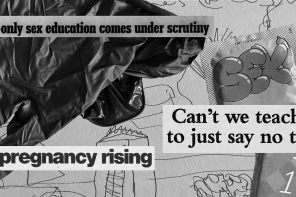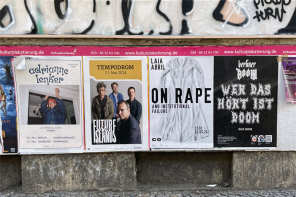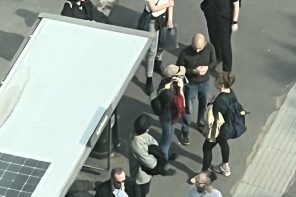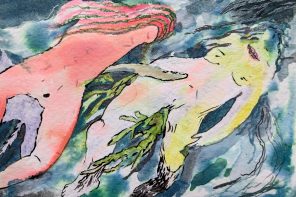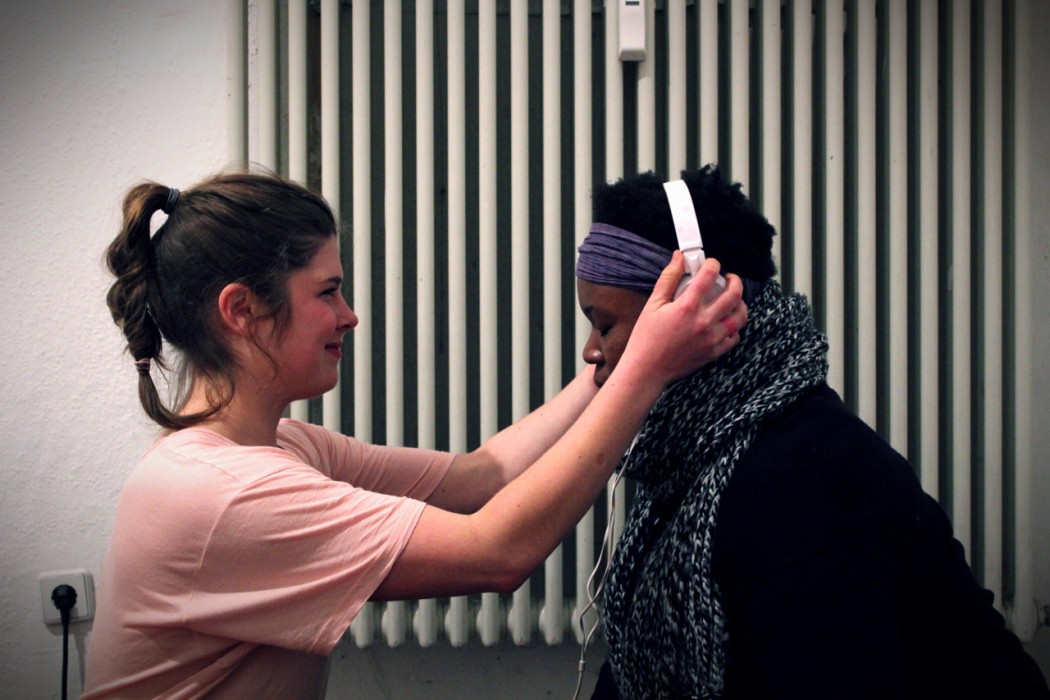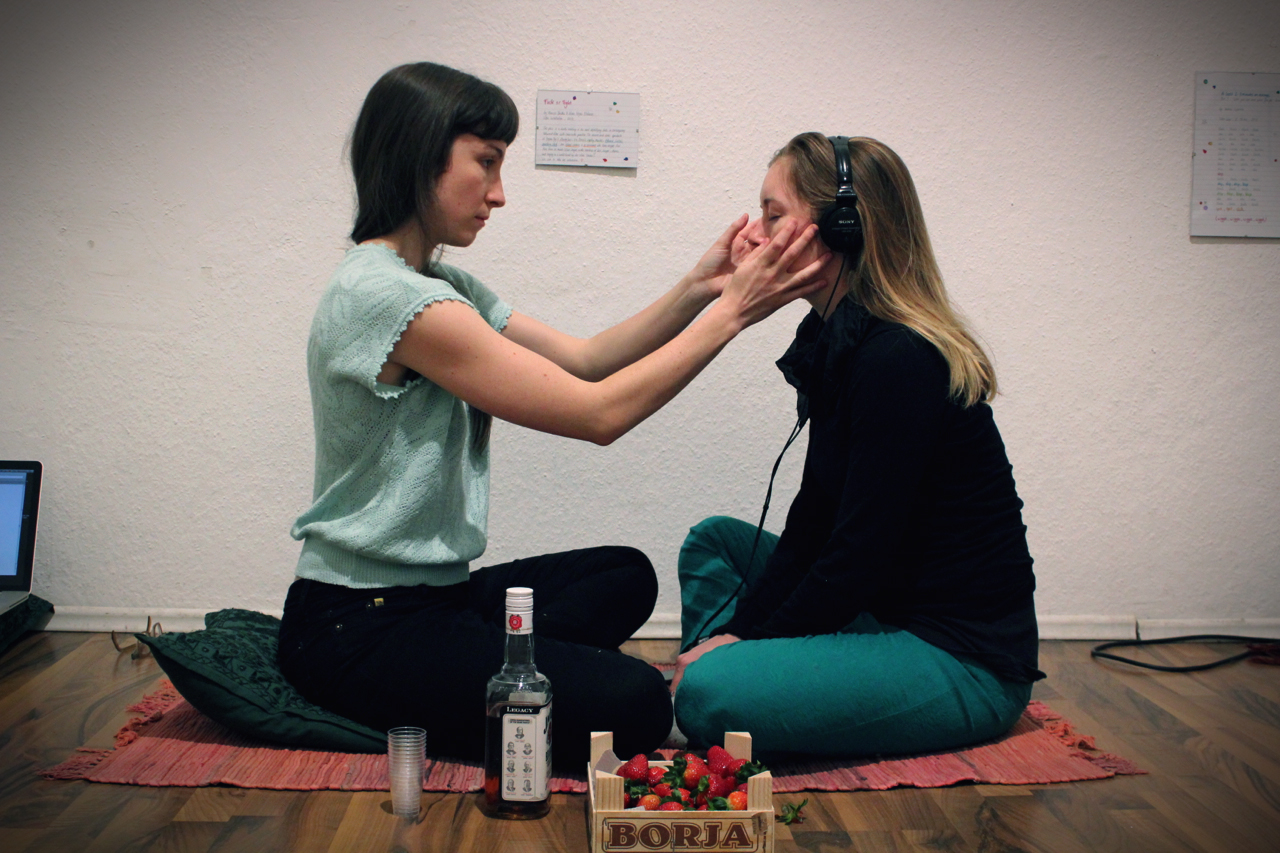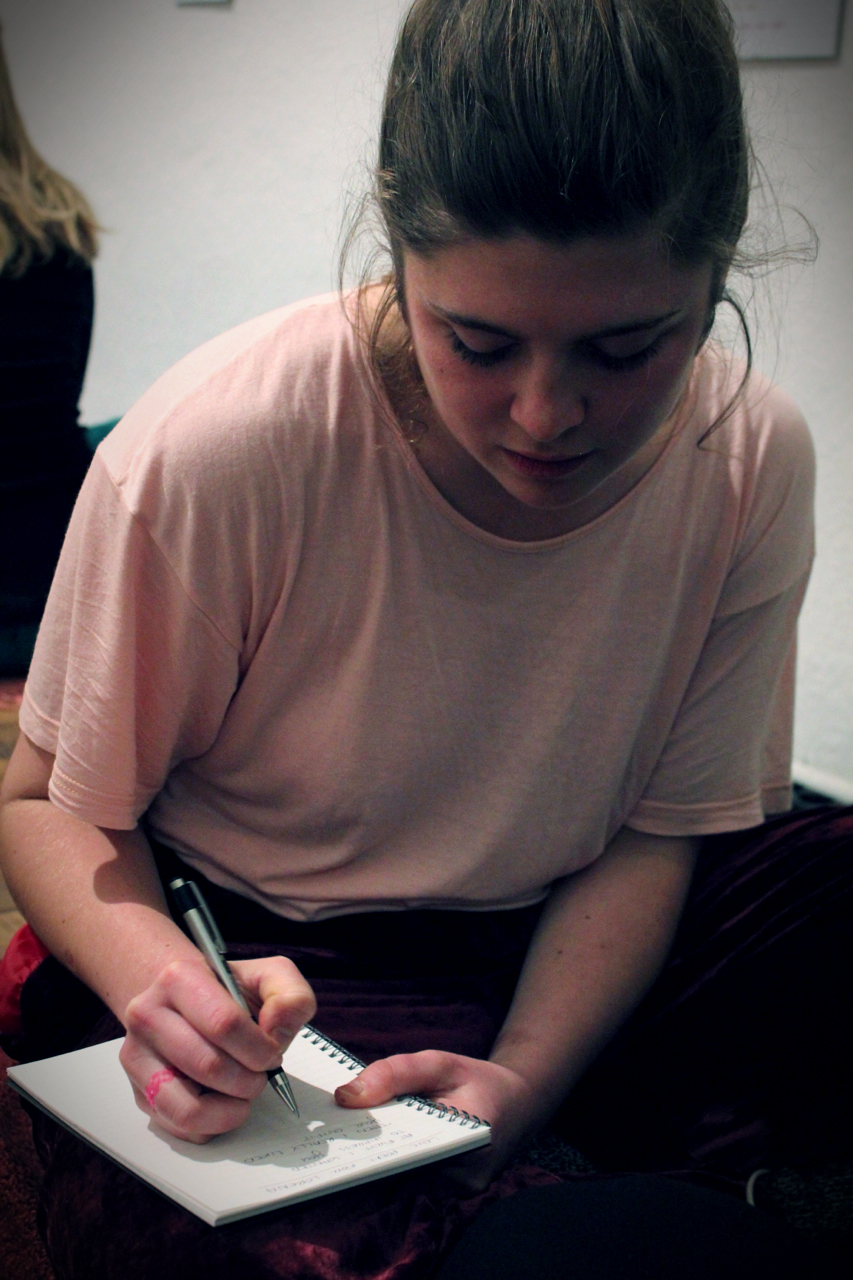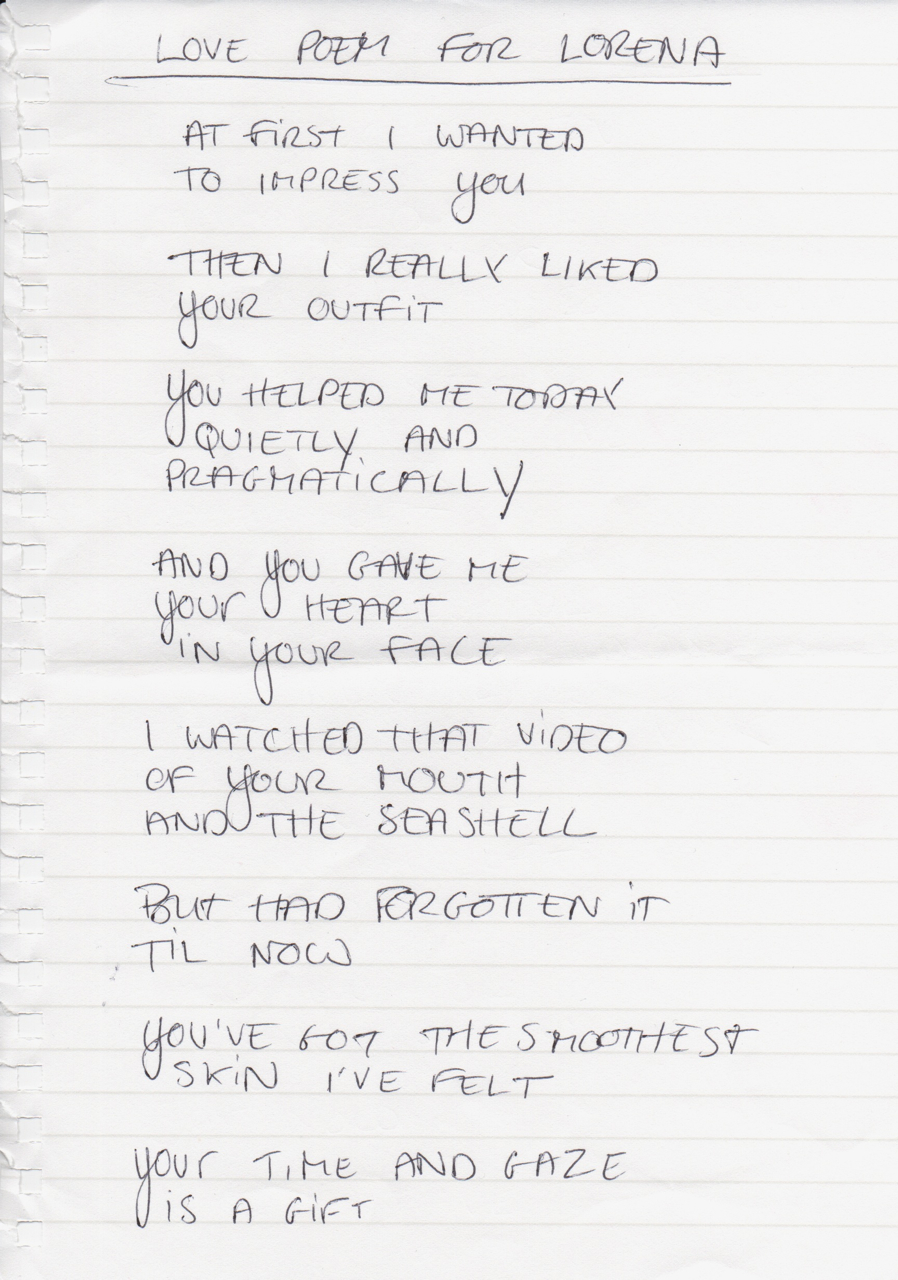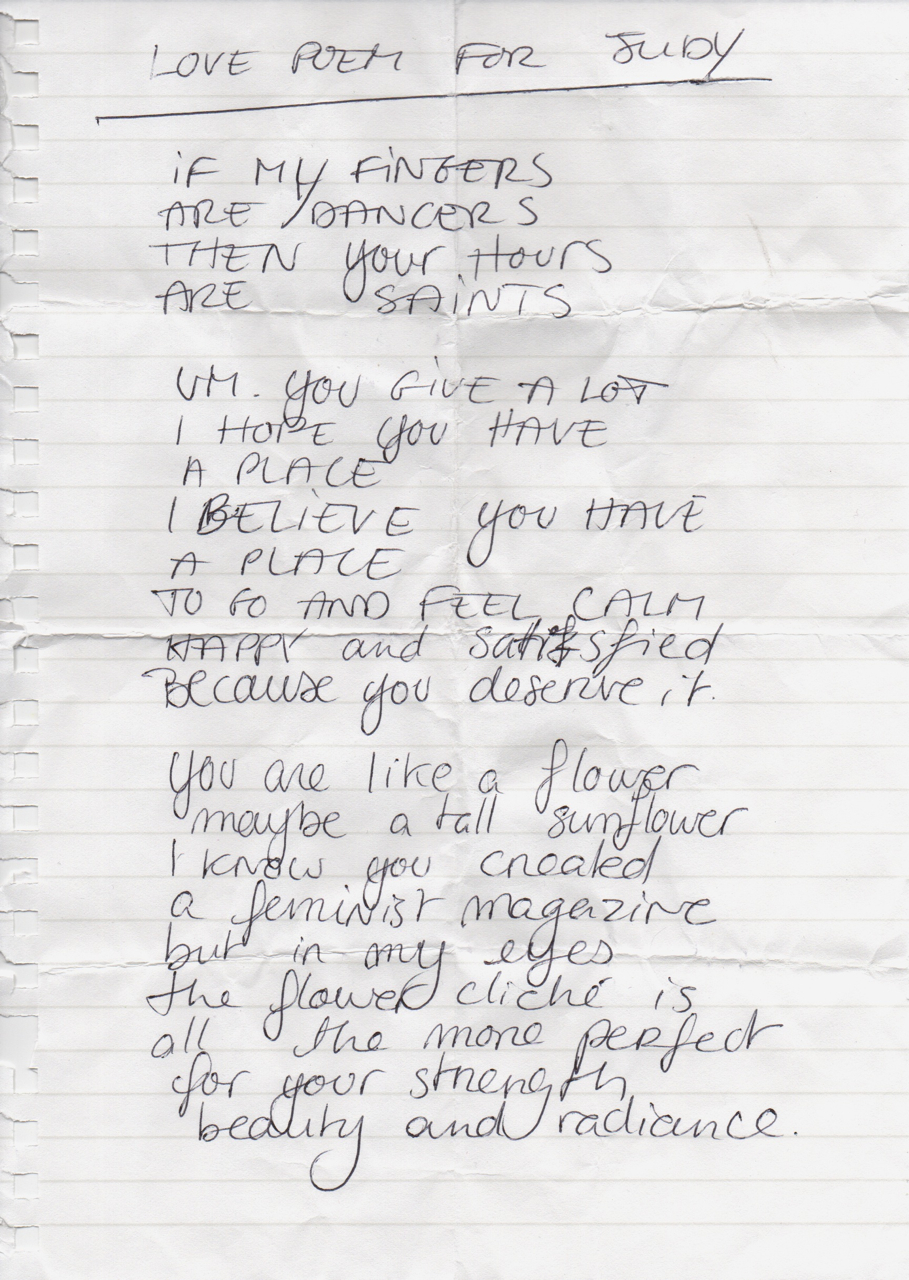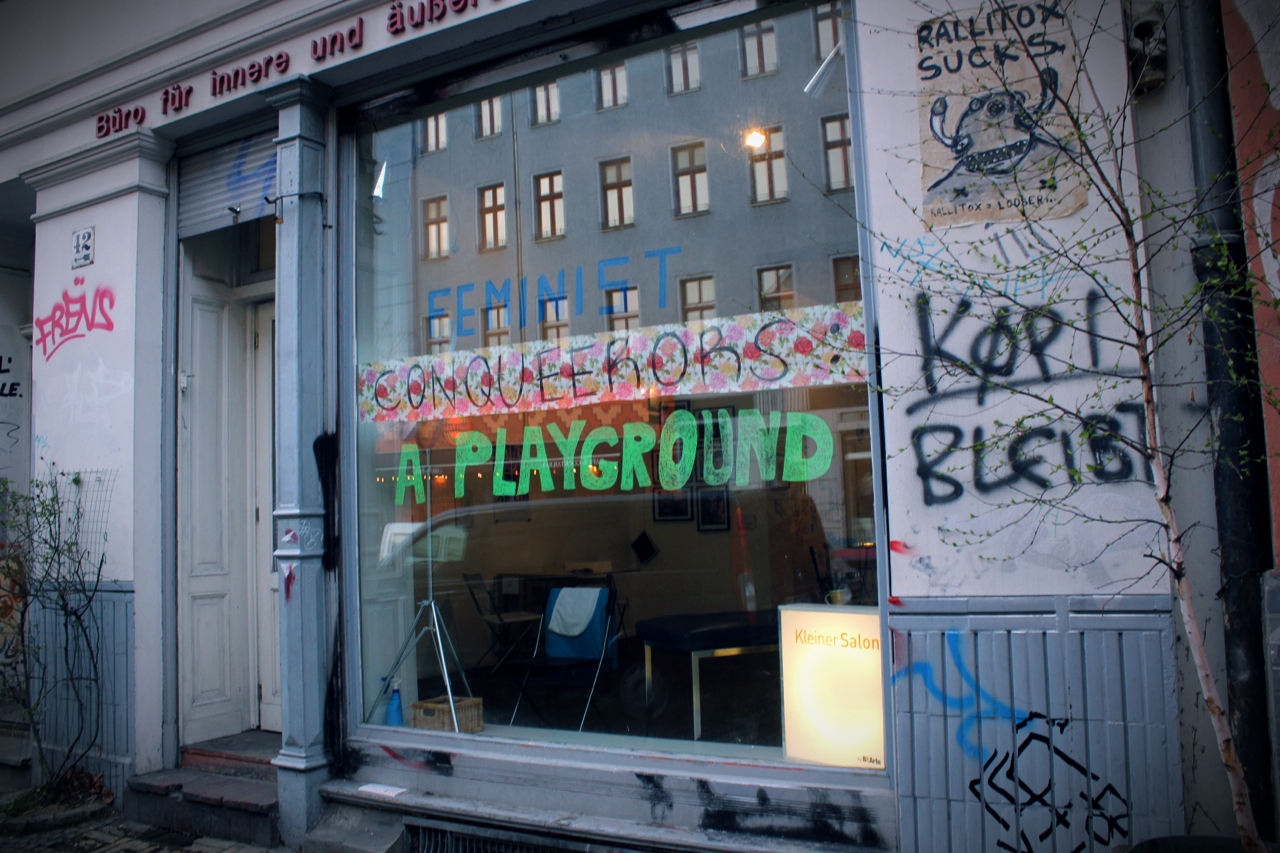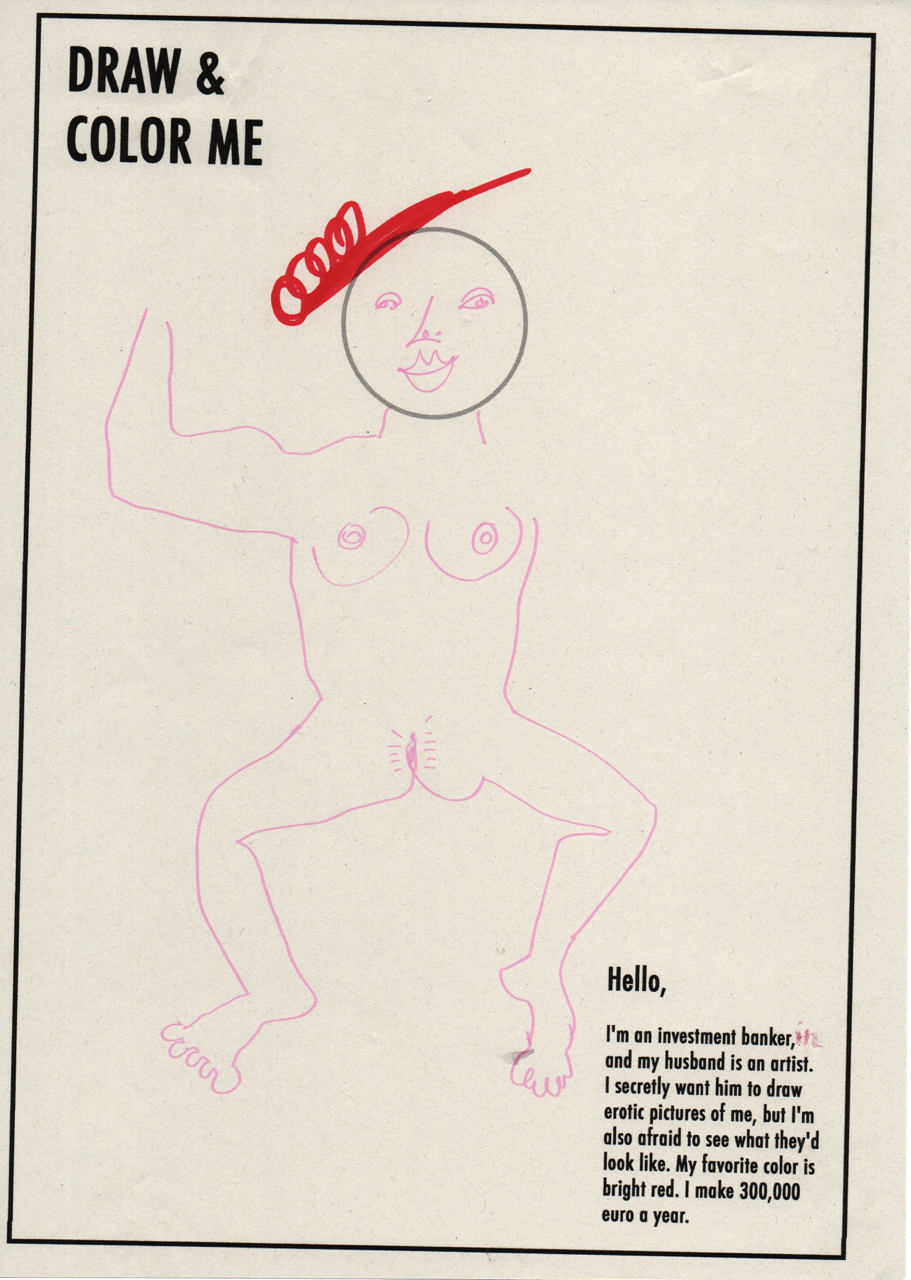I experienced/participated in Louise Trueheart’s LOVEWELL during COVEN’s Feminist Conqueerors exhibition, and was deeply moved. The piece, performed one night only by Louise, Alicia, and Oliver, is a one on one performance, which in this instance involved shared small food or alcohol, followed by mutual face touching, and an original poem. I had the pleasure of experiencing LOVEWELL with all three performers separately, and each experience was unique in interaction and result. On an emotional level, my experience with Louise felt like a new dimension of intimacy because we had spent time together before, whereas I met Alicia and Oliver half an hour before engaging in a level of physical intimacy I would not normally grant a total stranger. When invited to touch in return, I felt apprehension and a need to follow a map of touches similar to that that had just been performed on me, although over time I grew more comfortable, as such things go in any intimate situation. Each poem I received drew on prior interactions with me, from five minutes to months before, and I wonder how this was different for others who had had no contact with any of the performers prior to experiencing LOVEWELL.
In Trueheart’s own words, “ I believe that love exists in the fabric of everything, and that we all have the ability to create it or feel it whenever we want. My job is to design a context in which love can exist and to encourage or even dare people to experience love.” Her statement encapsulates what I experienced when participating in LOVEWELL: it was a safe environment to temporarily have a close form of connection that many of us enjoy but do not always feel comfortable initiating or admitting to experiencing. The context and content of the piece, involving touching a stranger for a limited period of time with no real risk of awkwardness afterward, made me consider the concurrent strangeness and ease of the interaction, and how these things related to the way I experience intimacy. I felt myself unsure of how the person I was interacting with was reading the situation and therefore compelling myself to be constantly observing, and then questioning why this level of anxiety continued to disrupt my experience. It is tempting to think of intimacy as having meaning or being possible only in certain contexts, and LOVEWELL questions that assumption. By creating a space explicitly for temporary but no less meaningful contact, Trueheart asks us to question our assumptions about the way in which we experience love daily and what gives those experiences meaning.
Words by Kiona H Niehaus
Photos by Judy Mièl
LOVEWELL’s letters and concept by Louise Trueheart

